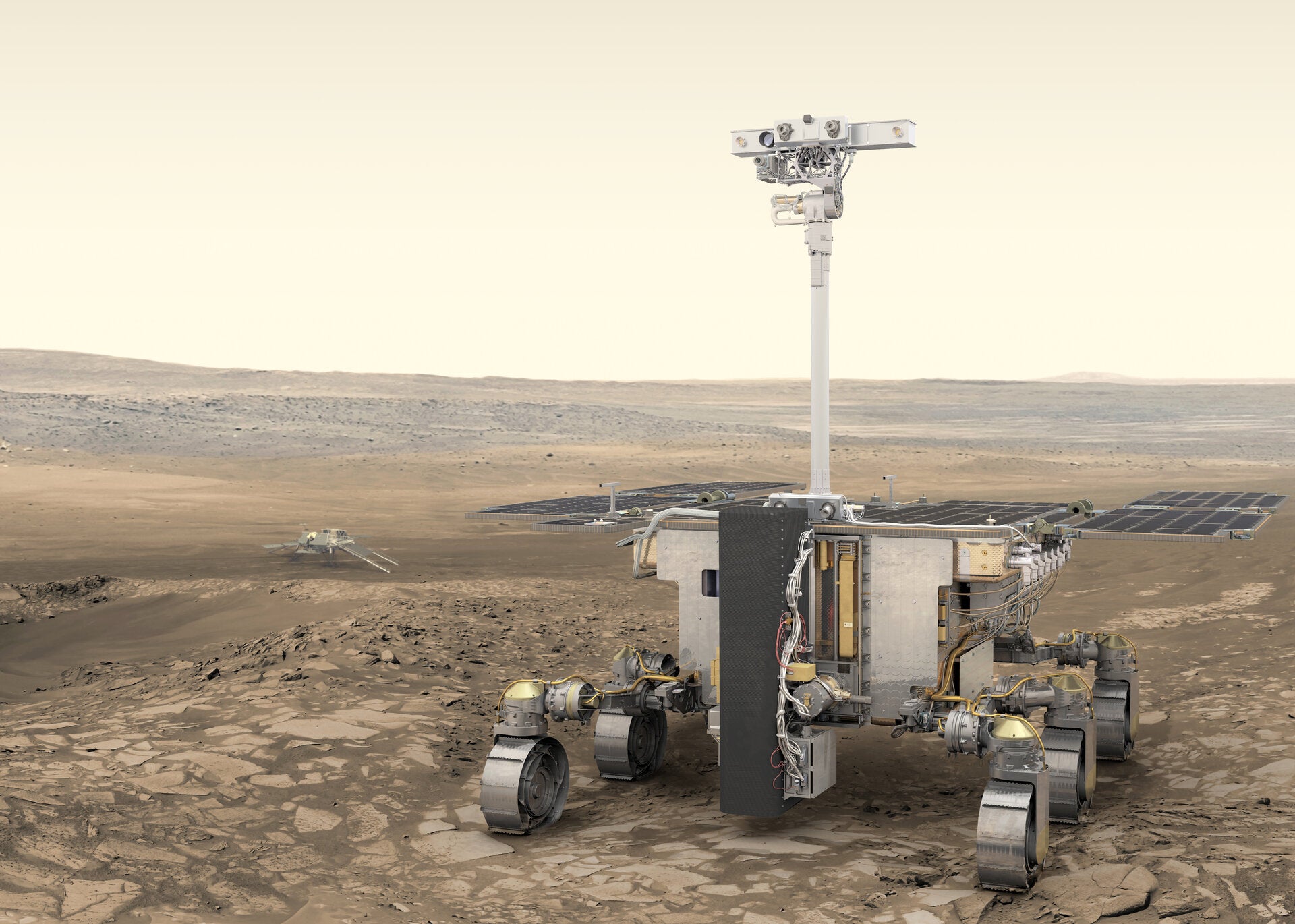Europe ends cooperation with Russia on ExoMars mission over war in Ukraine
After suspending cooperation with Russia on ExoMars in March, the European Space Agency moved Tuesday to formally end Russian involvement.

Your support helps us to tell the story
From reproductive rights to climate change to Big Tech, The Independent is on the ground when the story is developing. Whether it's investigating the financials of Elon Musk's pro-Trump PAC or producing our latest documentary, 'The A Word', which shines a light on the American women fighting for reproductive rights, we know how important it is to parse out the facts from the messaging.
At such a critical moment in US history, we need reporters on the ground. Your donation allows us to keep sending journalists to speak to both sides of the story.
The Independent is trusted by Americans across the entire political spectrum. And unlike many other quality news outlets, we choose not to lock Americans out of our reporting and analysis with paywalls. We believe quality journalism should be available to everyone, paid for by those who can afford it.
Your support makes all the difference.The European Space Agency has formally ended its cooperation with Russia on the ExoMars mission, citing the ongoing war in Ukraine.
The robotic mission to Mars had been scheduled to launch in September from Russia’s Cosmodrome in Baikonur, Kazakhstan, but ESA suspended the launch plans in early March following Russia’s invasion of Ukraine.
On Tuesday morning, ESA’s director general Josef Aschbacher announced on Twitter that the suspension of cooperation with Russia on ExoMars will be permanent.
Russia’s role in ExoMars had been to launch the ESA-built Rosalind Franklin Mars rover, along with Russia’s own Kazachok, a stationary science platform.
As Mr Aschbacher noted in his announcement on Twitter, ESA will seek other partners for launching the Rosalind Franklin rover. A 13 July ESA media release notes that Mr Aschbacher and representatives from both Nasa and the UK Space Agency will hold a press briefing on the future of Mars exploration at 4pm BST on Wednesday 20 July during the Farnborough International Airshow.
Dmitry Rogozin, head of the Russian space agency Roscosmos, responded to ESA terminating cooperation by accusing Mr Aschbacher of “sabotaging” ExoMars.
“Ashbacher announced the termination of cooperation with Roscosmos on ExoMars. But did this head of the European Space Agency think how many thousands of scientists and engineers in Europe and Russia he crossed out with his decision?” Mr Rogozin posted on the social media network, Telegram. “Is he ready to answer for sabotaging a joint Martian mission?”
Mr Rogozin also called on Russian cosmonauts on the International Space Station to stop operating an ESA built robotic arm on the space station.
“I, in turn, give a command to our crew on the ISS to stop working with the European ERA manipulator,” Mr Rogozin wrote. “Let Aschbacher himself and his boss Borrell fly into space and do at least something useful in their lives.”
Defiant, combative rhetoric from the Roscosmos chief is nothing new. Mr Rogozin, an appointee of Russian President Vladimir Putin, feuded with former American astronauts and compared Ukrainian President Volodymyr Zelensky on Twitter in the wake of Western sanctions over Russian invasion of Ukraine.
And in 2014, following western sanctions on Russia after the country invaded Ukraine and annexed the Crimean peninsula, Mr Rogozin threatened to stop flying American astronauts to the ISS.
Unlike 2014, however, neither American astronauts nor European space missions are fully dependent on Russian Soyuz rockets for rides to space. The proliferation of low cost private launch companies such as SpaceX and United Launch Alliance, along with any help offered by other space agencies such as Nasa, likely leaves Roscosmos with hot words, but little leverage, over the fate of ExoMars.
Join our commenting forum
Join thought-provoking conversations, follow other Independent readers and see their replies
Comments